- Contents
On Monday March 20th 2023, citizens in Kenya, Nigeria, and South Africa took to the streets to express dissatisfaction with their governments in dealing with economic and political crisis. Opposition political leaders in all three countries launched the strikes and protests on the same day, despite each country facing its own unique challenges.
To assess the situation on the ground, GeoPoll conducted a survey using its proprietary SMS and mobile web research platforms. The survey used a simple random sampling technique from GeoPoll’s database, gathering a sample size of more than 400 respondents per country (1,285 total) in a matter of hours as the protests were happening.
Findings from the study are detailed in this post published the morning after the protests. To view the full results, filterable by question, country, gender, and age group, scroll down to the Interactive Data Dashboard.
Public Perception and Outlook
With discontent rising to the point of public protests across Kenya, Nigeria, and South Africa, it follows that a majority of respondents in all three countries believe things in their country are currently going in the “wrong direction.” That perception remains consistent across gender and age groups.
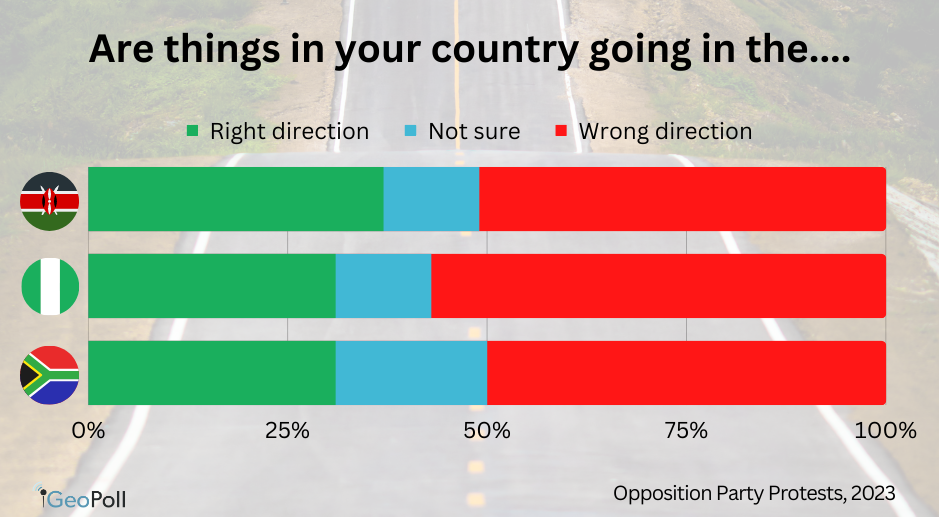
The largest segment of respondents in each country reports feeling “frustrated” with the current situation (42%). Many also report feeling “scared” with the protests swirling around them.
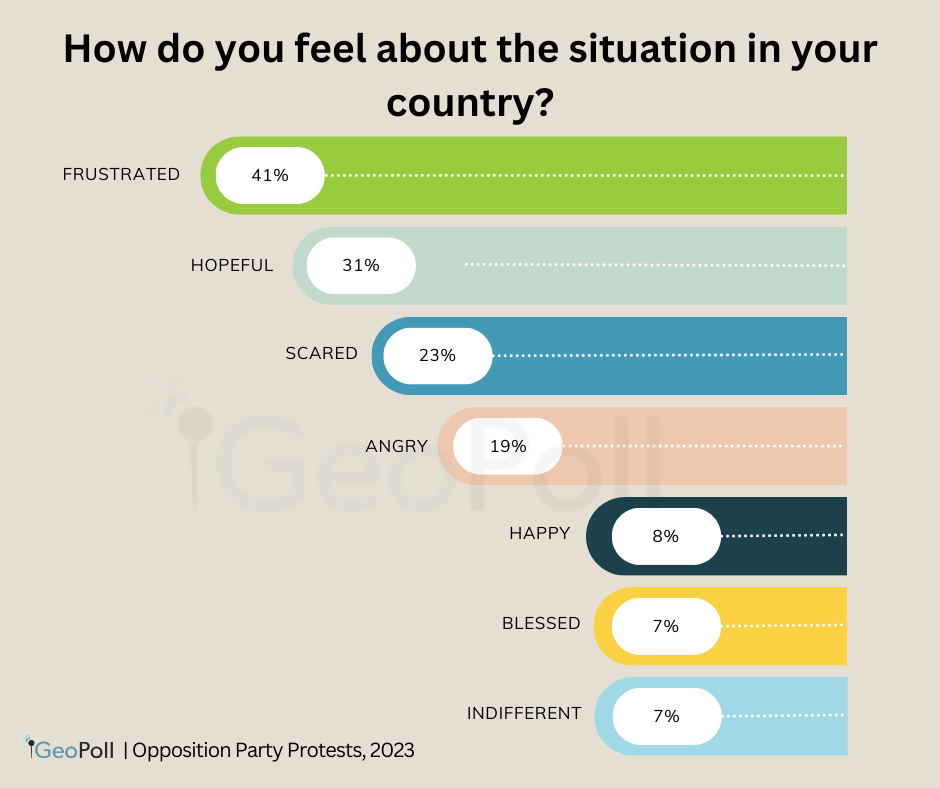
Although public sentiment skews negative overall (frustrated, scared, angry), almost one in three respondents report feeling “hopeful” (32%). That climbs to 42% in Nigeria. Respondents in Nigeria are also most likely to believe their country will get “better” in the future (64%). In South Africa, more believe their country will get “worse” (45%) than get better (37%).
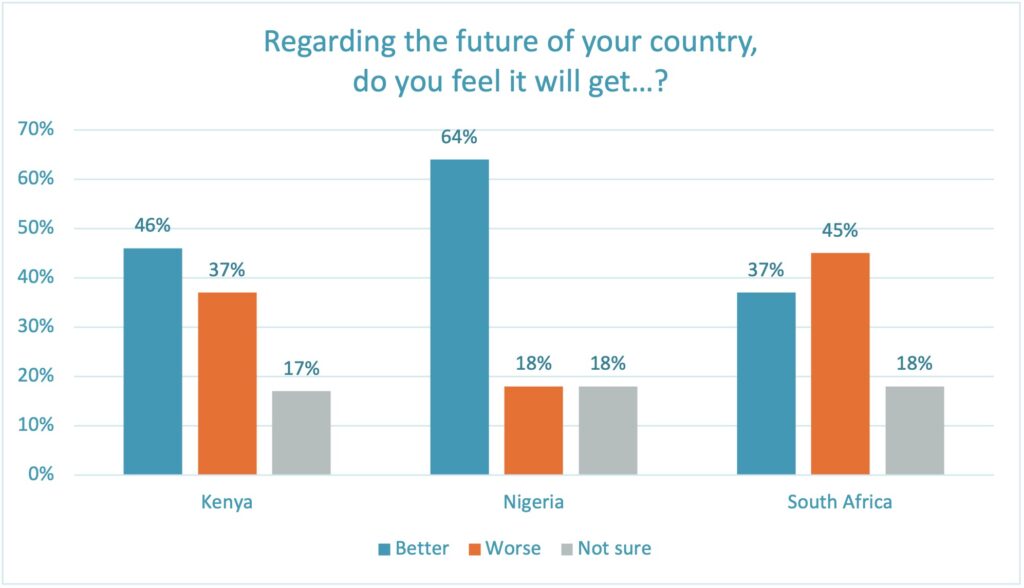
The issues driving dissatisfaction and unrest vary significantly between countries. Facing skyrocketing prices and new taxes in Kenya, most respondents consider “prices/cost-of-living” the country’s most urgent issue (62%). In Nigeria, the largest segment of respondents (33%) believe fighting “corruption” should be the top priority, while the crippling energy crisis in South Africa makes “electricity” the most urgent issue.
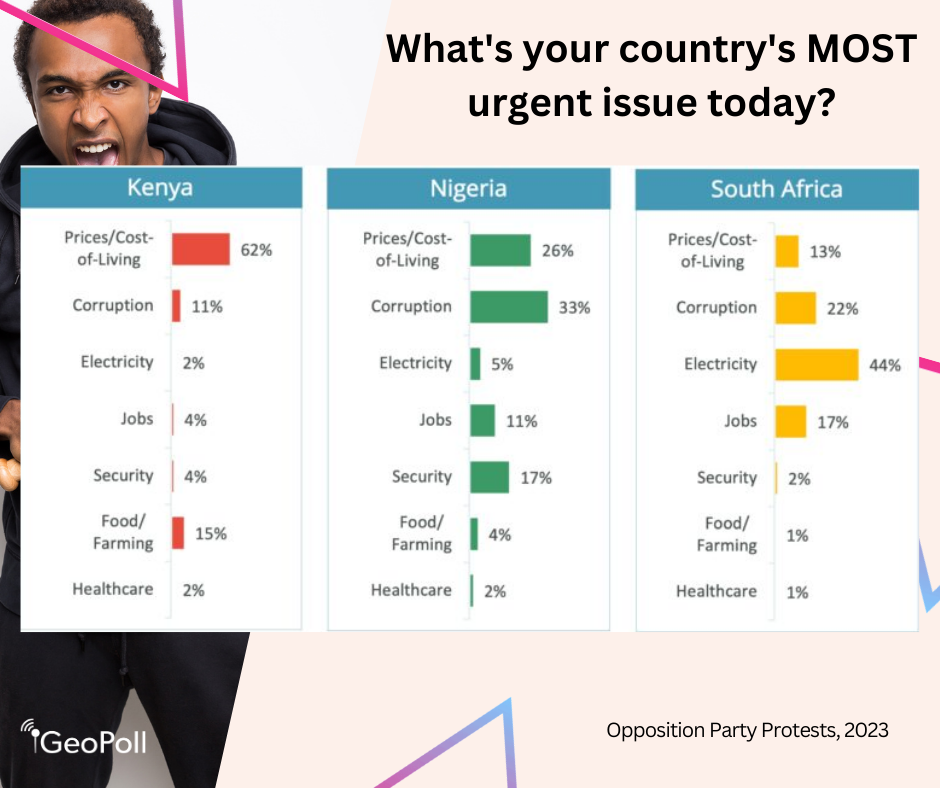
Political Parties and Leaders
Protestors across Kenya, Nigeria, and South Africa rallied on Monday to call out their respective government’s inability to address their country’s issues. In our study, more than half of respondents in South Africa and Nigeria (59% and 53%) and just less than half in Kenya (46%) say they have a “somewhat” or “very unfavorable” opinion of the current government/ruling party.
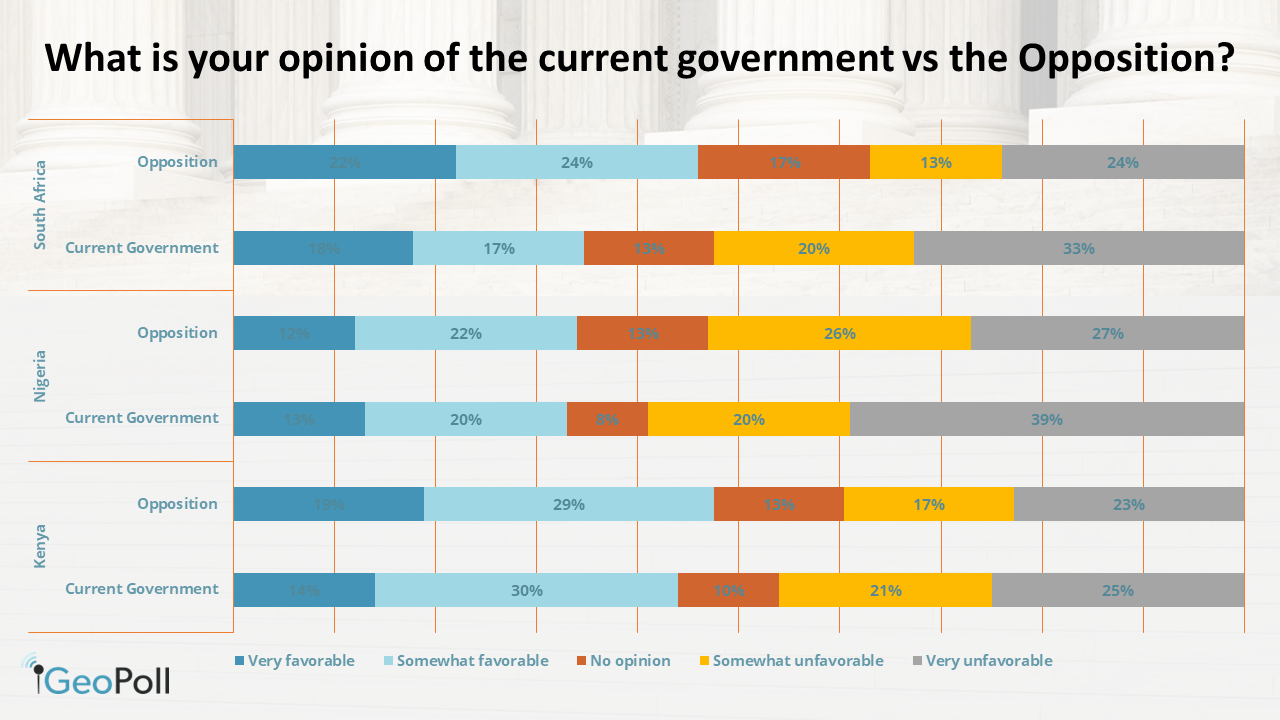
Opposition party leaders face a fair amount of skepticism as well. Respondents’ opinions of the opposition parties/leaders spearheading the mass actions in their country (Azimio/Raila Odinga in Kenya, PDP/Atiku Abubakar in Nigeria, and EFF/Julius Malema in South Africa) skew only slightly more favorable than their opinions of the ruling party.
Planned Participation
Most respondents did not plan to participate actively in the Monday nationwide strike (59%). Almost 1 in 4 (22%) did plan to participate, however. Another 19% were not yet sure, creating the potential for a formidable shutdown. Nigeria had the largest segment planning to participate at 27%.
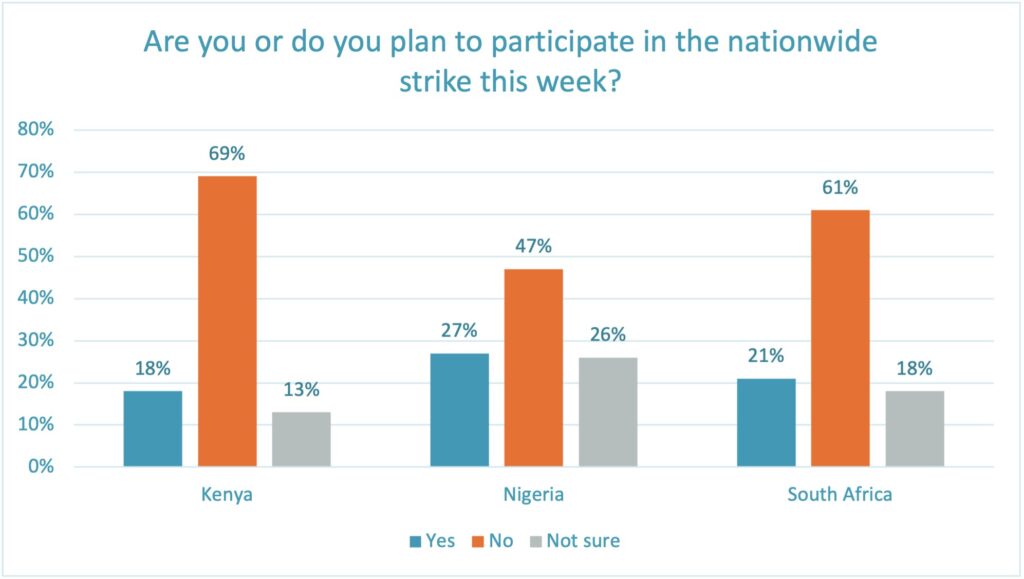
The percentages that planned to participate in protests or demonstrations this week show similar trends. Kenya, where the protests were declared illegal, had the fewest planning to participate (20%).
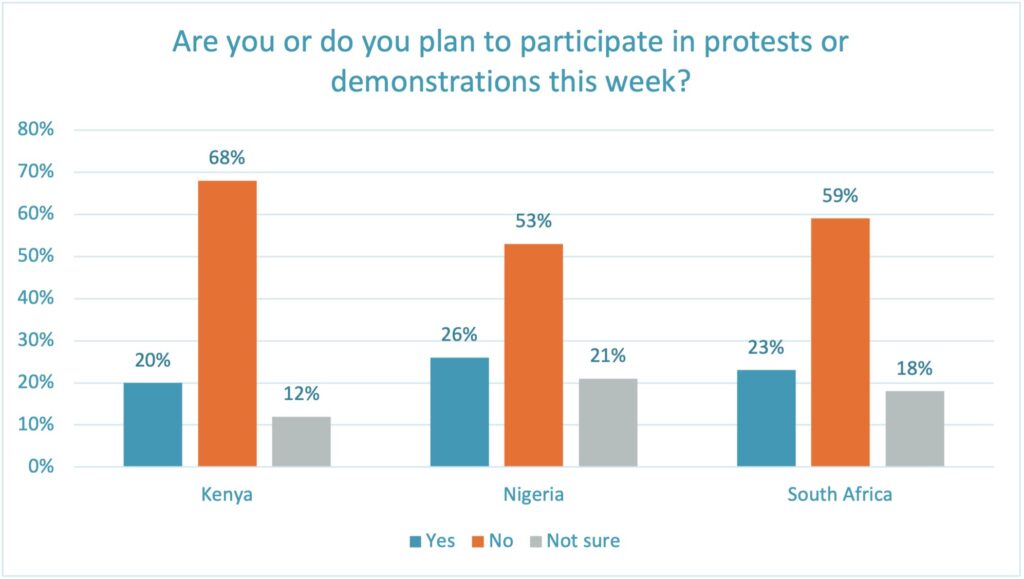
Potential Outcomes
One of the reasons why respondents may have been hesitant to participate in the strikes and protests is the potential for violence. A majority in all three countries say they are “extremely concerned” about the protests leading to violence or destruction.
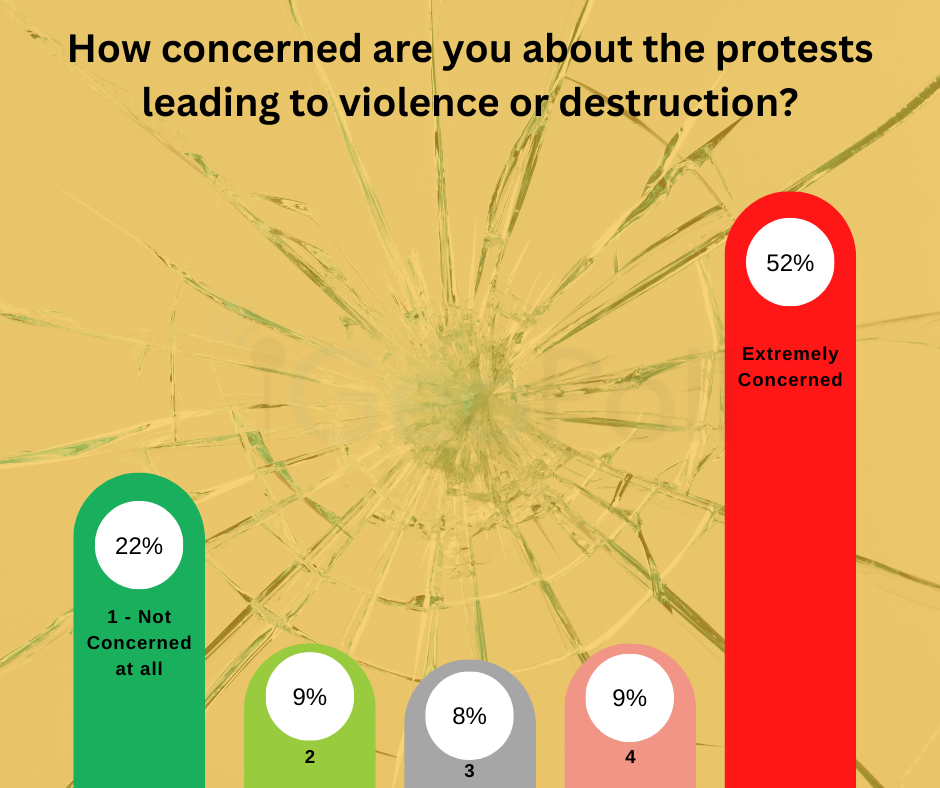
Early reports out of Kenya on Monday describe the use of tear gas and arrests in response to the protests. In South Africa, 87 people were arrested before the protests even began for alleged public violence.
In addition to concerns about violence, many also express skepticism about the impact of the protests. The largest segment overall say they are “not optimistic at all” that the strikes/protests will positively impact their country. Skepticism runs particularly high in South Africa (47%) and Kenya (46%).
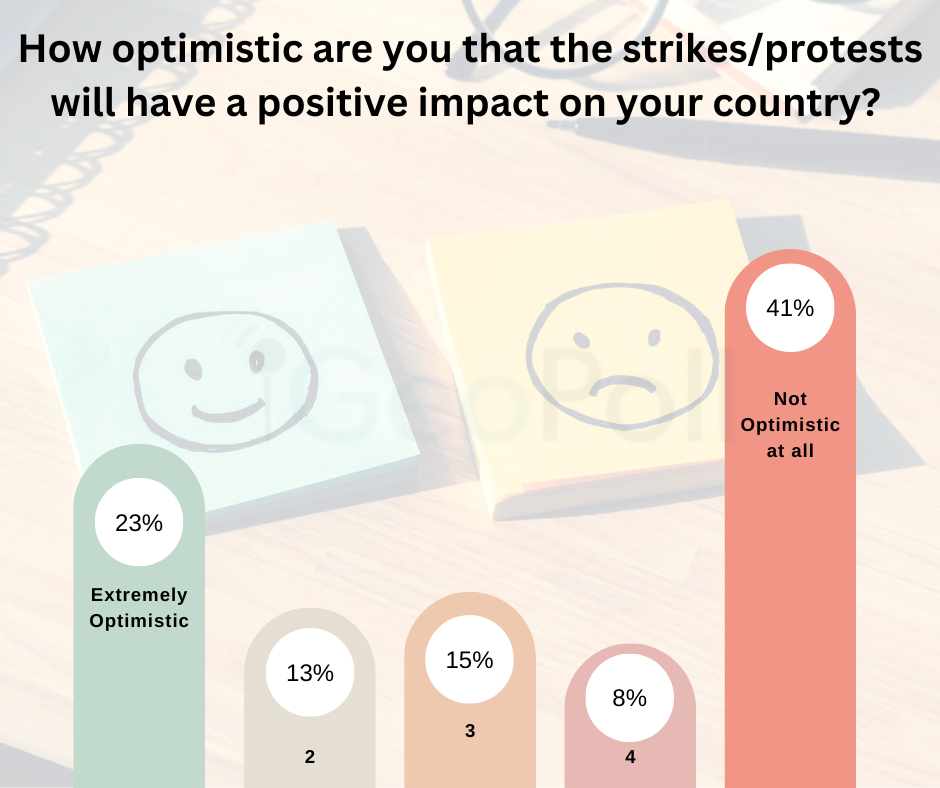
Interactive Data Dashboard
Dive deeper into the full results from this study using the interactive dashboard below. The dashboard provides responses to each question in the survey, filterable by region, age group, and gender.
Conduct Research in Times of Crisis
GeoPoll has extensive experience conducting research in times of crisis and unrest through remote mobile-based methodologies. In situations when it is otherwise impossible to get information from people on the ground, remote data collection allows governments and democracy groups to reach citizens in remote areas or conflict zones quickly and safely, without the need for on-the-ground enumerators.
To learn more about GeoPoll’s capabilities across Africa and around the world, please contact us.
Top photo credits: @EFFSouthAfrica
